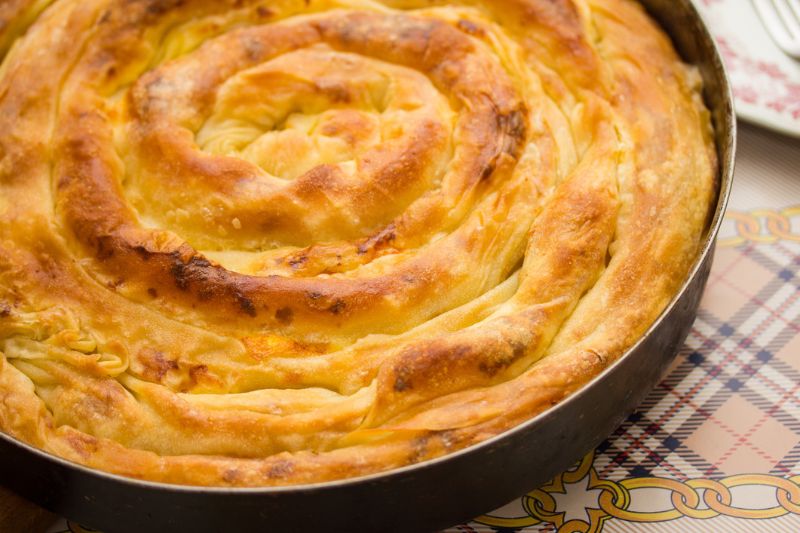The flick with the hand was what did it. Deft with a culinary poet’s sense, moving the pastry paste, moulded and ready to be enfolded in as if to music. While living in the south of Serbia, this masterly madam of the kitchen was producing something from her Serbian Bosnian background: the compact, textured pastry known as pita.

Her artistry to villagers and family members was seen as magic, a necromancer of the kitchen. No one else could do it, nor kept a set of skills that would never be passed on. And here she was, mother-in-law, a creature of fortress resoluteness quiet but more formidable than any.
Mama, a person who dominated behind and beyond the noise of convention in the kitchen and the home, was an unassailable figure in the southern Serbian village of Rakovac, where murmurings of the old Ottoman Empire can still be heard. In this tangle of history, she performed domestic and culinary miracles, an unsurpassed conjurer.
Writing about her is like contemplating a monument of tenderness writ large. She asked nothing of anybody. She did all for everybody. Perennial, ever present, ever reassuring with an almost holy comfort. With women of fortified brilliance like this, families are sustained, comforted, and fed. With such support, the weak are always reassured, the less capable advanced. This is family, love without condition.
Such women suffer in silence before expectations, the heavy hammer of tradition, the remorseless thumb of family obligation. They perform, in spite of this onerous weight, with stellar glory, with feats otherwise deemed ordinary by society. Sons and daughters, ignorant of culinary tradition, assume such talents to be dull and do little to learn them. Next to social media and the digital feed provided by Silicon Valley, the kitchen is stern, traditional and uninteresting. Even in Serbia, people can order the takeaway gastronomic snatch with ease, freed of mother’s essence and the sage’s awareness.
To that end, feeding a family can be regarded as pedestrian, tedious and undeserving of attention. But Mama had a habit of elevating it with dash, flash and more than panache. She did so with a breathtaking elegance and intelligence, a cruisy engagement verging on danger. Recipes were snapped up and reconfigured; ancient lore and the novel idea stored in her vast, intelligent mind. You might even say her edginess verged on being funky. In all of this, she was a sublime miracle maker, one who could draw the infinite from the minimal.
'A talent, with her Alexandrine library of knowledge on baking, cooking, knitting, crocheting, was gathered. As she left, a miasma of ignorance, indifference and inability hovered.'
This was done in a glory of talent, oblivious to the consumers who simply thought they were eating what was expected. The children ate. The in-laws ate. The neighbours ate, and even friends in other parts of Serbia ate. And it was all assumed as natural that a weathered woman of such talent should still cook, clean and guard the house against attacks of hunger, and attacks of everything else, for that matter.
She was the sun that rose with confident assurance and set, testily, in the evening. Given that she slept a mere few hours, she tended to be at her labours as others snored in convenient luxury, rustling about in the early hours even before dawn sorting out the matters of the day. But when you woke, you knew that the universe was solid, positioned, reassuring.
The breakfasts that followed in the small, hot living room in this squat cottage was plentiful and heavy. The kajmak seemed to skip into your mouth with eagerness. The cold cuts, smoked meats specifically bought for the visitors, rushed to you with avid interest. The yoghurt was ready and abundant. All served on the charming plates with bonhomie cutlery.
Lunch and dinner was always deliciously heavy, softened by the smooth washings of the brandy called rakija and, for the fortunate son-in-law, rich red wine with tannin, peppered softness. Dinner was delightfully destructive to waistlines and trim stomachs. Grilled fish, stuffed peppers, pastry with taste as to call out across the other villagers. We have her, and there is no one else.
The thin forks and knives, sharply miniature, were sweet supplements, evocations of family past. When you ate with them, there was a proximity to the meals, a congenial connection. They suggested a sweet idiosyncratic presence.
To be present before this genius of culture was to be a courtier and guest to scented gastronomy. Pickles and bottled ajvar, a specialty based on capsicum roasted in late summer. The infinite capacity to make desserts that were never too sweet. Experiments not just in cuisine, but in knitting, crocheting, dressmaking. A dab hand at shaping the world of clothing and creating majesty for wearing.
Then, nature got busy. This glory of life, this formidable figure we all knew as Mama, was taken. Having laboured for the family without recognition for the majority of her life, having worn and strafed her hands and arms for years over washing and cleaning, a few strokes intervened. A talent, with her Alexandrine library of knowledge on baking, cooking, knitting, crocheting, was gathered. As she left, a miasma of ignorance, indifference and inability hovered.
On returning to this patch of earth in southern Serbia, where the Ottoman haze lingers with historical thickness, and the Serbian dialect sings in a different register through the plays of Borisav Stankovic, the ache gnaws and tears with grief. As the fires are tended, she will be speaking through her hands, her gestures, her recipes. They will be flicking, adjusting and, dare one say it, commanding the next dish to be and to become. Comfort will be restored. The pot should be readied. And finally, some sleep shall come.
Dr. Binoy Kampmark was a Commonwealth Scholar at Selwyn College, Cambridge. He currently lectures at RMIT University.
Main image: Traditional Bosnian pita (Getty Images)